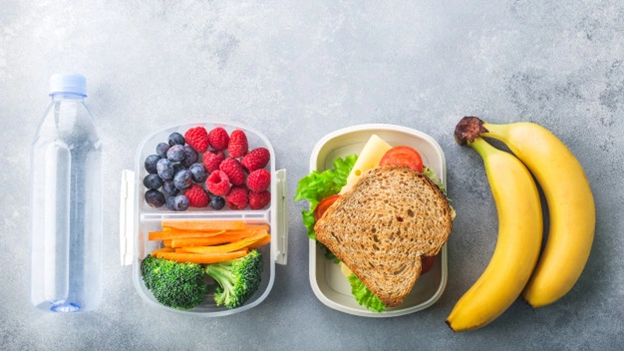Future of Food Safety: What Packaged Salad Brands Are Doing to Combat Listeria Contamination
As the demand for convenient and nutritious food options grows, packaged salads have become a staple in many households. However, the risk of listeria contamination has cast a shadow over the safety of these products. Listeria monocytogenes, the bacterium responsible for listeriosis, poses a serious health risk, particularly in raw, refrigerated foods like salads. To […] The post Future of Food Safety: What Packaged Salad Brands Are Doing to Combat Listeria Contamination appeared first on Entrepreneurship Life.

As the demand for convenient and nutritious food options grows, packaged salads have become a staple in many households. However, the risk of listeria contamination has cast a shadow over the safety of these products. Listeria monocytogenes, the bacterium responsible for listeriosis, poses a serious health risk, particularly in raw, refrigerated foods like salads. To address these concerns and ensure consumer safety, packaged salad brands are adopting innovative strategies and technologies. This article explores the future of food safety and the proactive measures brands are implementing to combat listeria contamination.
The Challenge of Listeria Contamination
Listeria monocytogenes is a formidable pathogen due to its ability to grow at refrigeration temperatures and its resistance to many common disinfectants. For packaged salads, which are often consumed raw and have a relatively long shelf life, this poses a significant challenge. Effective measures are required to prevent contamination at every stage of the supply chain, from farming to processing to retail.
Innovations in Food Safety

To tackle the risks associated with listeria contamination, packaged salad brands are employing a range of innovative strategies and technologies:
Advanced Washing Techniques
- Antimicrobial Washes: Some brands are incorporating antimicrobial agents into washing processes to enhance the removal of Listeria from leafy greens. These agents help to kill bacteria more effectively than water alone.
- Enhanced Washing Systems: The use of advanced washing systems, such as high-pressure jets and ozone treatments, can further reduce bacterial loads on produce. These systems are designed to improve the efficiency and thoroughness of the cleaning process.
The Top 4 Food Service Businesses To Start This Year
Improved Sanitation Practices
- Robust Cleaning Protocols: Manufacturers are implementing more rigorous sanitation practices in processing facilities. This includes regular cleaning and disinfection of equipment, surfaces, and storage areas to prevent cross-contamination.
- Continuous Monitoring: Advanced monitoring systems are being used to detect contamination in real-time. These systems provide immediate feedback, allowing for quick corrective actions to be taken if Listeria is detected.
Temperature Control Innovations
- Smart Refrigeration: Smart refrigeration technologies that monitor and control temperature in real-time are being adopted. These systems ensure that salads are kept at optimal temperatures throughout storage and transportation, reducing the risk of bacterial growth.
- Temperature-Sensitive Packaging: New packaging materials with built-in temperature indicators can alert consumers and retailers if salads have been exposed to unsafe temperatures.
Get A Taste For Success By Investing in This Lucrative Industry: Introducing Fast Food Franchises!
Enhanced Quality Control
- Regular Testing: Brands are increasing the frequency and scope of testing for Listeria in both raw ingredients and finished products. Comprehensive testing protocols help identify potential contamination sources and address them before products reach consumers.
- Supplier Verification: Rigorous verification processes for suppliers ensure that raw ingredients meet strict safety standards. This includes audits, certifications, and testing of incoming produce.
Consumer Education and Transparency
- Clear Labeling: Packaging labels are being designed to provide more information about safe handling and storage practices. This helps consumers maintain the quality and safety of packaged salads at home.
- Educational Campaigns: Brands are launching educational campaigns to inform consumers about food safety practices, including proper storage and handling of packaged salads.
Collaboration and Industry Standards
- Industry Partnerships: Collaboration between salad brands, food safety organizations, and regulatory agencies is fostering the development of industry-wide standards and best practices. These partnerships aim to enhance overall food safety and address common challenges.
- Adherence to Regulations: Brands are working closely with regulatory bodies to ensure compliance with the latest food safety regulations and guidelines. This includes implementing new standards and participating in food safety research.
How To Store Food in Your Restaurant Properly
Looking Ahead: The Future of Food Safety
As technology and research continue to advance, the future of food safety in packaged salads will likely see further innovations. The integration of artificial intelligence, machine learning, and data analytics may provide even more sophisticated solutions for detecting and preventing contamination. Additionally, ongoing improvements in food safety protocols and consumer education will play a crucial role in safeguarding public health.
Conclusion
The fight against Listeria monocytogenes in packaged salads is a dynamic and ongoing challenge. However, with the adoption of advanced technologies, improved sanitation practices, and a commitment to transparency and consumer education, salad brands are making significant strides in enhancing food safety. As the industry continues to innovate and collaborate, the future of packaged salads looks promising, with a focus on ensuring that these convenient and healthy options remain safe for consumers.
The post Future of Food Safety: What Packaged Salad Brands Are Doing to Combat Listeria Contamination appeared first on Entrepreneurship Life.














